Ruth Downie - Tabula Rasa
Здесь есть возможность читать онлайн «Ruth Downie - Tabula Rasa» весь текст электронной книги совершенно бесплатно (целиком полную версию без сокращений). В некоторых случаях можно слушать аудио, скачать через торрент в формате fb2 и присутствует краткое содержание. Год выпуска: 2014, ISBN: 2014, Издательство: Bloomsbury USA, Жанр: Исторический детектив, на английском языке. Описание произведения, (предисловие) а так же отзывы посетителей доступны на портале библиотеки ЛибКат.
- Название:Tabula Rasa
- Автор:
- Издательство:Bloomsbury USA
- Жанр:
- Год:2014
- ISBN:9781620403235
- Рейтинг книги:5 / 5. Голосов: 1
-
Избранное:Добавить в избранное
- Отзывы:
-
Ваша оценка:
- 100
- 1
- 2
- 3
- 4
- 5
Tabula Rasa: краткое содержание, описание и аннотация
Предлагаем к чтению аннотацию, описание, краткое содержание или предисловие (зависит от того, что написал сам автор книги «Tabula Rasa»). Если вы не нашли необходимую информацию о книге — напишите в комментариях, мы постараемся отыскать её.
Tabula Rasa — читать онлайн бесплатно полную книгу (весь текст) целиком
Ниже представлен текст книги, разбитый по страницам. Система сохранения места последней прочитанной страницы, позволяет с удобством читать онлайн бесплатно книгу «Tabula Rasa», без необходимости каждый раз заново искать на чём Вы остановились. Поставьте закладку, и сможете в любой момент перейти на страницу, на которой закончили чтение.
Интервал:
Закладка:
“Do you think he could have taken the boy?”
Pertinax grunted. “If he did, my judgment must be going. Who else?”
Pertinax did not recognize the other names whose movements were being checked. “Whoever it is, he’ll make a mistake before long,” he said. “He’s scared. Must be. Have they checked the rolls to see who’s missing?”
“It’s being done, sir. There are search parties and roadblocks, and local forts and slave traders have been notified. Nothing’s come up so far.”
The eyes closed, and Pertinax let out a long sigh. “And I’m lying in bed.”
Ruso watched him for a moment, then picked up his case and tiptoed toward the door. His hand was on the latch when he heard a voice behind him. “I’m not asleep,” it said. “Tell them to find that boy. They must find that boy, alive and well, or everything our lads fought and died for will be thrown away.”
Chapter 39
The sacrifice was done, perhaps with the right words and perhaps not, but the smell of roasting lamb drifted off into the woods and the neighbor’s dog was hanging around, looking hopeful. Most of the visitors were long gone, promising to search and offer prayers for Branan and to visit their neighbors and try to track down the real source of the body-in-the-wall rumor. They had seemed quietly relieved to go home. There were cows and goats to be milked, hens to be shut away before the fox came, and husbands and children to be fed. They had been given a good excuse to go and do all those things without looking as though they were abandoning Enica with neither husband nor son.
Enica had gathered names of rumor-mongers, promising everyone that whatever came to light would be kept secret from the soldiers: Nobody will be punished. Tilla had kept silent. The soldiers had been accused of child stealing. They would do their best to find out everything, and when they did, there was no telling what they would do. You couldn’t blame them. They had put a lot of work into that wall only to find themselves with enemies on both sides of it.
Tomorrow they would chase the rumor. Tonight, the day was coming to a close with Branan still not found. The remaining women stood around the fire: Enica with the dried blood of the slaughtered lamb dark on her forehead. Cata with her bruised face and bandaged fingers. Even the woman with the lisp had nothing to say. There was no sound around the fire but the crackling of the wood and the odd hiss as the lamb’s fat dripped into the flames. Somewhere beyond the gate, a blackbird was singing his close-of-day song. Tilla felt as though she could reach out and touch the absence of people who should have been there. Branan, of course. Senecio. The dead brother she had never met. Conn and the other men who were out searching.
She pulled her shawl tighter around her shoulders and repinned it. She felt guilty about leaving Enica but she too had something to do. “I will speak to Virana,” she promised. “She will know if there are any fresh stories about the body in the wall. If there is any news-” She broke off. Everyone was looking toward the road. The blackbird had sounded the chack-chack of a warning cry, and almost straightaway the soldiers appeared.
It seemed Tribune Accius had ridden his gray stallion down the long track to the farm with only four guards in attendance. Beside him, on a bay horse whose coat needed brushing, was Tilla’s husband. The horses stopped outside the gate. Enica hurried forward to greet them.
Tilla did not need to see the men’s faces under the helmets. She could tell from the way they moved as they swung down from the horses that there was no good news.
A mule cart drew up on the track behind the riders: Conn and the other searchers from the house. They too looked weary. She guessed both groups had already spoken on the way here.
Her husband unfastened his sword, then murmured something to Accius. They seemed to be arguing. Finally Accius handed over his weapon. Leaving the cart to his companions, Conn slung both swords over his shoulder and went into the house without a second glance, as if he disarmed legionary tribunes every day. Tilla wondered what role he had played in the troubles.
Enica stood back, allowing the soldiers to enter. Leaving the guards outside, the officers walked into the yard. The tribune’s gaze darted about as if he were assessing the location and looking out for threats and escape routes. Tilla wondered if he had ever been to a native farm before.
She stood back as her husband introduced the tribune and Enica to each other. After a quiet conversation the two men walked up to the fire, bowed, and threw herbs into the flames as a mark of respect. Then they stepped back and waited as the scent of rosemary and bay wafted into the air. Enica went to fetch Conn and the others. They emerged from the house, several of them carrying drinks. Conn wrapped a cloth around his hand and hacked some untidy slices from the outside of what remained of the lamb now that the proper portions had been burned for the gods. None was offered to the soldiers.
Accius was still glancing around, taking it all in. Tilla guessed he would rather have spoken privately with the man in charge than face a group of locals whose language he neither spoke nor understood. But the man in charge would have been Senecio, who was not here, and even if Romans had been good at negotiating with women-which they were not-Enica was in no fit state to deal with him. She had wisely called everyone together, and he was outnumbered.
In spite of all the Army’s weapons and armor and discipline and shouting, and despite the Great Wall that would help them to control everybody’s movements, they had been unable to stop one of their own people committing a terrible wrong. Yet, the disgrace of having a child snatcher in the ranks did not seem to have taught Accius humility. Tilla listened as he introduced himself, and then to her husband’s translation of it. Accius regretted that he had brought no news. He had just spoken to Senecio, who was well, and he had come to say personally how sorry he was that the boy was missing.
Tilla felt they could have worked out for themselves that he had come personally. He could only be speaking of it because he wanted to make sure that they understood what an honor it was. Then he told them that the army was taking “this allegation” very seriously indeed.
Her husband did not translate it as she would have done. Allegation was a cautious word but not a good one. It suggested that the tribune thought somebody here might be lying. Her husband translated it as “bad news.” Either he did not know the word, or he knew the offense it would cause. She wondered how many of the Britons had noticed.
After that, the tribune told Enica that the army was doing everything in its power to find her boy alive and well. He seemed annoyed when, instead of falling at his feet and thanking him, Enica interrupted.
“She says,” Tilla interpreted before her husband had the chance, “the boy has no coat with him.”
Accius replied that they knew what the boy was wearing.
That was not what Enica had meant, though. She was worrying about her son out there, enduring a second night with no warm covering.
“The description of the boy has been sent out with despatches to all military establishments in the province together with official posting stations,” the tribune announced, “and the legate has ordered a reward to be offered for his safe return.”
Tilla left her husband to translate that into British.
The Britons looked unimpressed. Conn was more interested in what had happened to the soldiers who had come to search the farm.
Accius told him they were now under arrest.
“Then why are you here?” Enica demanded. “Why are you not making them tell you where my son is?”
Читать дальшеИнтервал:
Закладка:
Похожие книги на «Tabula Rasa»
Представляем Вашему вниманию похожие книги на «Tabula Rasa» списком для выбора. Мы отобрали схожую по названию и смыслу литературу в надежде предоставить читателям больше вариантов отыскать новые, интересные, ещё непрочитанные произведения.
Обсуждение, отзывы о книге «Tabula Rasa» и просто собственные мнения читателей. Оставьте ваши комментарии, напишите, что Вы думаете о произведении, его смысле или главных героях. Укажите что конкретно понравилось, а что нет, и почему Вы так считаете.



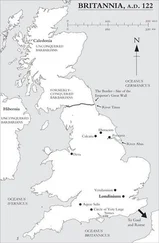
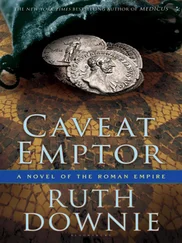
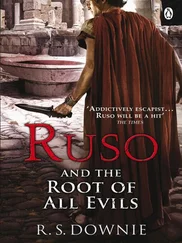
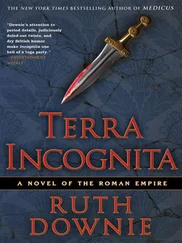
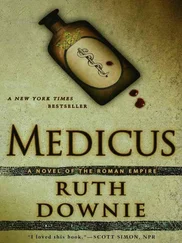
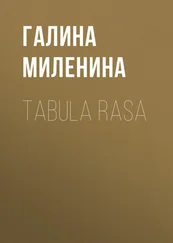
![Антон Архангельский - Tabula Rasa - Исходная точка [калибрятина]](/books/392380/anton-arhangelskij-tabula-rasa-ishodnaya-tochka-k-thumb.webp)


